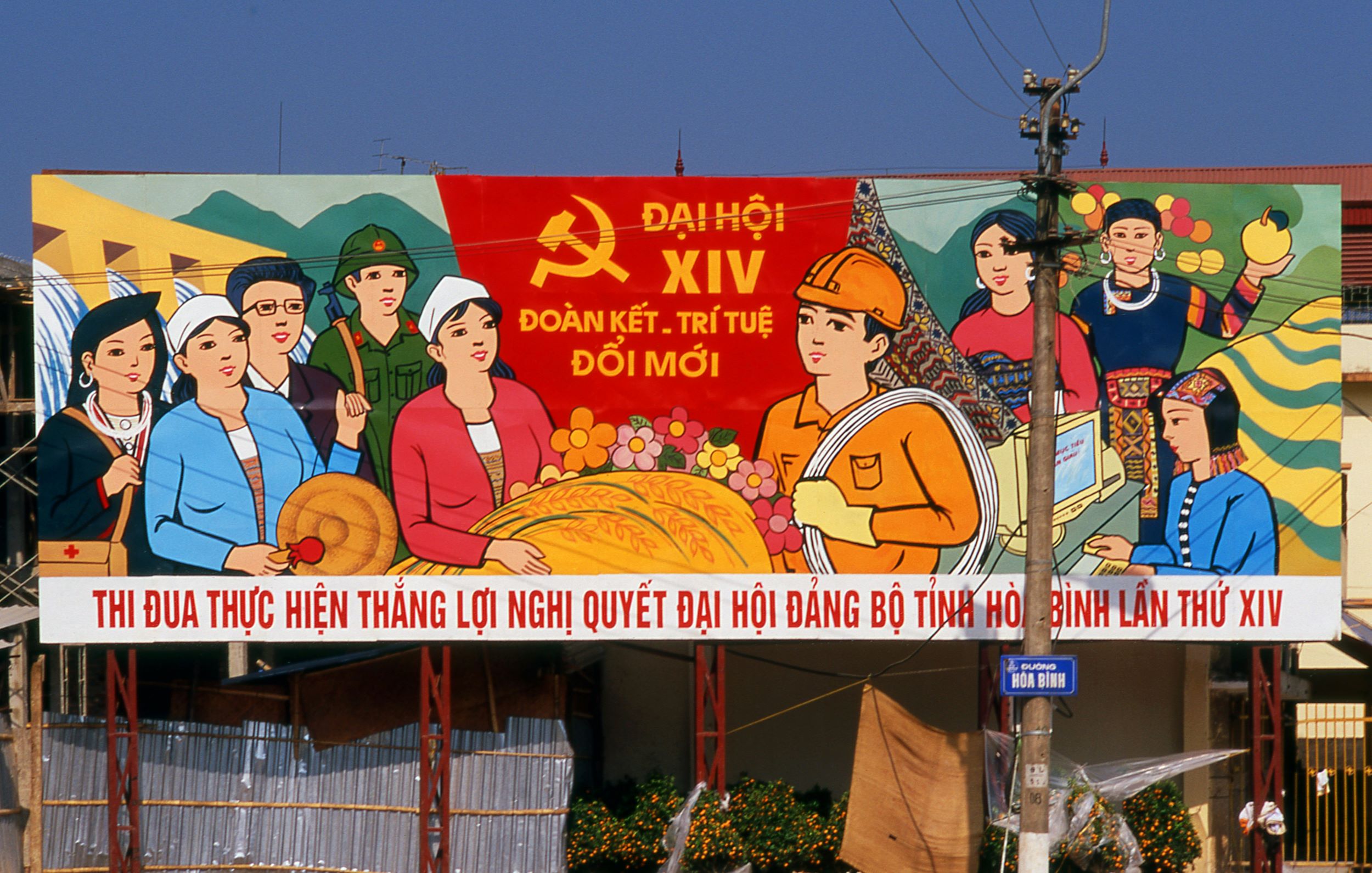Through a series of in-depth interviews with journalists in Vietnam, our writer - who remains anonymous for security reasons - paints a picture of censorship and journalists facing fines and even prison for mentioning ‘toxic’ subjects
For a man whose dreams of studying engineering in Germany were dashed when his Communist government ‘“selected” him to go to Beijing to study Chinese instead in 1964, it is strangely unsurprising to hear Việt*, now 72, explain: “I did not choose journalism. Journalism chose me."
When the then-high school student in Thanh Hoá province - devastated at having his future shaped by what he calls “the invisible above” - protested the choice to his school leaders Refusing to have his future shaped by “the invisible above”, he was accused of “hatching individualistic ambitions” and not fully embracing Communist ideals.
Not only was his loyalty called into question, his Class President was held responsible for his poor attitude. Việt, who asked to be referred to by his first name only for security concerns, had no choice but to comply with the decision that he should study Chinese rather than engineering.
In the end, political upheavals in China were what changed the minds of the powers that be. Fresh from victory over the French in 1954, Vietnamese leaders, however, maintained that cultivating a group of French-speaking Communist members was still sorely needed to support normalisation with France in the near future. Việt was duly dispatched to the Hanoi College of Foreign Languages to study French.
Upon graduation from college with flying colours, he was placed at the Media section at the Ministry of Foreign Affairsin charge of translating news from French into Vietnamese, marking his first touch with journalism.
As there was a shortage of writers who could understand French, Việt, who later became a Communist party member, was chosen to write news articles for an outlet under the administration of the Ministry of Foreign Affairs on a short-term contract. Being passionate about writing, he also freelanced for other news outlets as an independent journalist.
His career since then, he says, has been an act of juggling his autonomy as a journalist and adhering to the unwritten rules of Communist-ruled Vietnam, which ranked 174 out of 180 examined countries in the Reporters Without Borders 2022 press freedom index report.
Việt's story mirrors the struggles faced by Vietnamese journalists spanning several different generations - both independent and affiliated - in the ever-shrinking civic space of the rapidly developing country deemed “closed” by CIVICUS’s State of Civil Society Report in 2020.
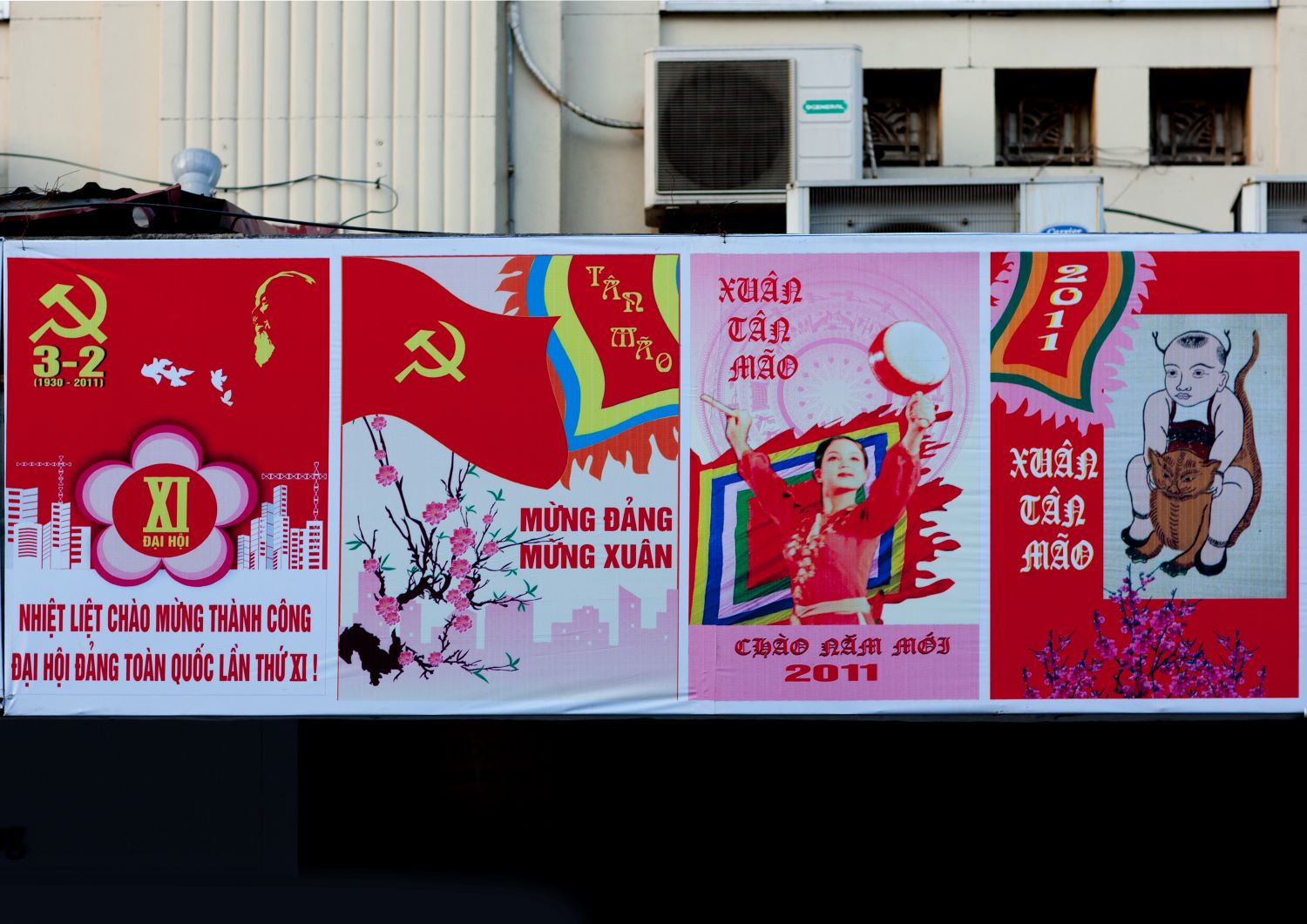
Becoming a journalist
The Vietnamese press flourished in the French colonial era and was thriving by the early 20th century. Then, most Vietnamese journalists wrote and published in French. Only in the mid-1950s did the Vietnamese language rise to prominence in the media.
Journalism first obtained its official status as an academic discipline in Southern Vietnam, the erstwhile US - supported Republic of Vietnam, which was founded in 1955. After the fall of Saigon in 1975, tertiary journalism education was disbanded until the 1990s, when the Ministry of Education and Training began to recognise the pressing demand for professional journalism cadres to serve the Communist Party following its economic reform (known as đổi mới). As a result, the establishment of journalism departments and programmes at four institutions was licensed.
“I learned journalism by reading French news and translation,” says Việt. “There were so few schools and so few teachers [in the 1960s] that could teach real journalism at the time in North Vietnam.”
It did not take Việt long to notice that entry to state press agencies was not based on merit. Instead, candidates were selected on the basis of their political background, particularly the political inclinations of their great grandfathers, grandfathers and fathers.
“Your family's affiliation with the Communist party was more important than your capacity,” says Việt, who adds that his background was very “red”, given that his father was a revolutionary who died during the anti-Japanese independence movement in 1945.
Today, loyalty to the Party remains imperative if you want to get ahead in journalism at state agencies.
Quyên*, a 30-year-old journalist originally from Thái Nguyên, shares a similar experience of becoming a staff member at a news outlet under the administration of the Ministry of Culture, Sports and Tourism in 2014. Having an advanced degree with first-class honours from the Academy of Journalism and Propaganda in Hanoi under her belt certainly qualified her to work at a state outlet. Yet, according to Quyên, her family connection to a senior officer at the Ministry of Culture was her key “qualification”.
“I technically had an entrance exam, but everybody knew that it was just cosmetic," says Quyên, whose name has been changed for privacy concerns. “Nobody supervised me during the exam day.”
Censorship is so intermittent that sometimes you have the illusion that you could write about anything, only to be reminded by some police officers that you could not
Việt, journalist in Vietnam
To qualify for a position at a state-owned media agency, Quyên explains, her party membership was the icing on the cake.
“I wish to get promoted some day. For promotion [at a state agency], Communist party membership is a prerequisite. So I just prepared it in advance," says Quyên, who became a Communist party member at the age of 20 while still a college student.
According to Quyên, graduating from her alma mater might even put candidates who aspire to work at dynamic media outlets at a disadvantage. Along with some universities, the Academy of Journalism and Propaganda is nicknamed a “red" university, with more emphasis on coursework about Communist Political theories than on practical skills for aspiring journalists.
“Graduating from there [the Academy] or some other ‘red’ universities indicates that you are more ideologically advanced than average students, since you have to take more Party-related classes,” says Quyên.
One editor of a local economy-focused magazine, who spoke to Al Jazeera Journalism Review on condition of anonymity, says he has little interest in hiring journalism majors in general. Moreover, he admits that he is not enthusiastic about recruiting graduates from the Academy of Journalism and Propaganda, because “these are the most brainwashed folks”.
“[At the academy], students hear more about theoretical journalism than learn how to do real journalism,” the anonymous editor says. “Many subjects are taught without standard textbooks or qualified teachers.”
In short, two attributes are expected for journalism graduates: loyalty to the Communist Party and socialist fatherland as well as mastery of mass communication theories.
“Our teachers have never ‘done’ journalism. Some of them had never even studied journalism,” adds Quyên.
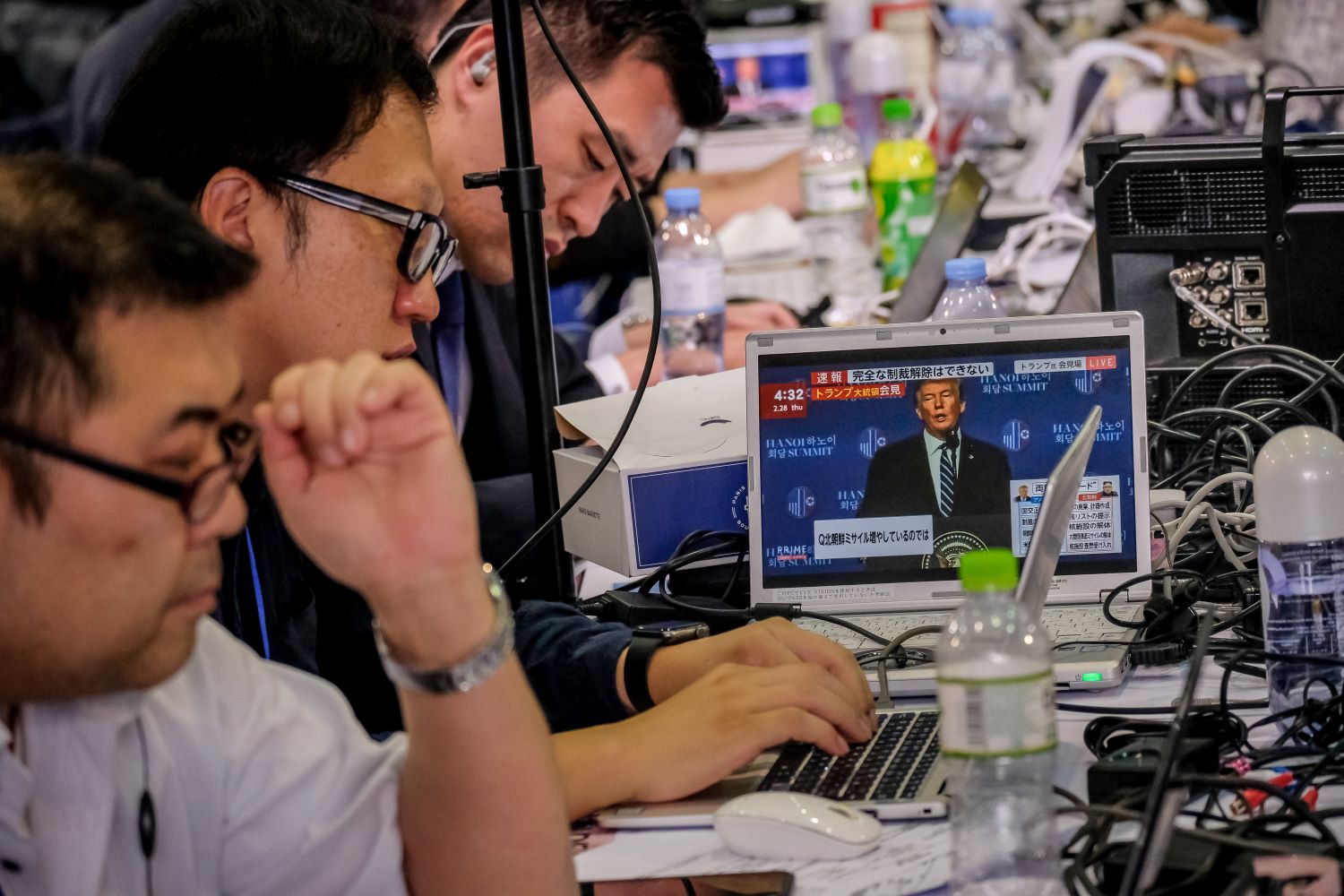
Relegated to the ‘cheap’ news
In 1970, when Việt and his colleagues discovered that a married staff member on the news desk where he was still working for the outlet under the Ministry of Foreign Affairs, was having an affair with a junior editor, he decided to report it to a superior, only to face reprisals not long after.
“I was so consumed by and convinced of the ‘Communist ideals’ that I thought my act was right. But it hurt more than helped,” Việt says now.
His contract as a translator and writer was not renewed. More importantly, as Việt fell from grace for having exposed an “inconvenient truth” about a leader at a state agency, partner media institutions who had been previously interested in employing him did not seem keen anymore.
“They kicked me out because I spoke the truth; how could I trust that they would be interested in pursuing any truth?" says Việt.
However, following socio-economic reforms in the late 1980s, known as đổi mới, media outlets started to mushroom across the country and were soon in need of talented writers.
Việt continued to contribute to different magazines under different pen-names to avoid attention “from above” - despite being fully employed in other fields.
“If I used my own name, I might lose jobs again,” says Việt, who believed he could only continue working as a journalist if he remained below the radar.
As a journalist, Việt wrote about a variety of topics, from international literature to new technological inventions, describing his job as “truly liberating but isolating”. While writing for the Ministry of Foreign Affairs, Việt focused on hard news. As a freelancer, he found it easier to stick to soft news, such as arts, sports and literature. Việt says that he practised self-censorship by not writing anything in a critical tone.
Stories of “purged” intellectuals Nhân Văn, Giai Phẩm during the cultural movement in the late 1950s that Việt had heard from senior colleagues and friends awoke him to the intolerance of the Party to those who questioned its monopoly on the media and cultural space.
Even though the Constitution guarantees freedom of speech, criticism of the Communist Party is an offence under various laws. After all, it is also emphasised in the Constitution that the Party plays the leadership role in all facets of life. All media outlets are answerable to the Ministry of and Ministry of Public Security.
“I only focused on the ‘human’ side of things in our society. I am afraid of politics," says Việt.
In Vietnam, popular and headline making stories are sex-related, or stories which are shocking or sentimental (known in Vietnamese as the three ‘S’ factors: sếch, sốc, sến).
“I have been able to make a living out of cheap stories," says Việt. “From time to time, I thought of writing something big and bold, but when I had a few mouths to feed, I only cared about writing being safe and self-sustaining."
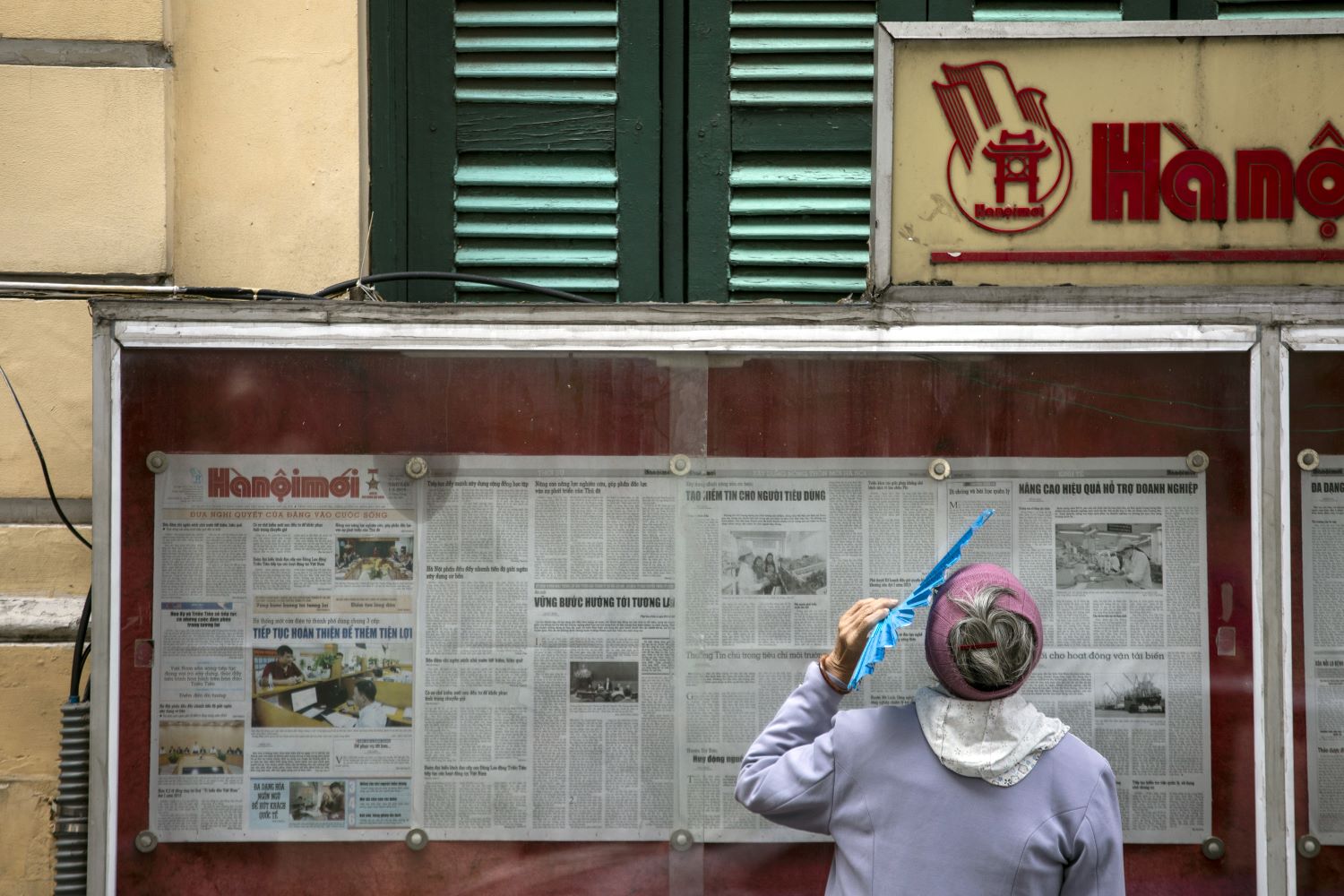
Sticking to ‘clean’ stories
Hà*, who asked to be referred to by her first name for security reasons, now 50, entered journalism with an English language teaching degree. She became a journalist in the 2000s, after a competitive entrance exam on general knowledge, English proficiency and argumentative writing skills. Hà says that most successful candidates from the competition did not have any journalism background. Learning journalism first through translation was the choice of many of her peers. Hà and her colleagues were members of the first generation to practise online journalism. These days, Hà is a senior editor at one of the most widely read online news organisations in Vietnam, in charge of international news.
“It is the ‘cleanest’ sector in the magazine," says Hà, who explains that she does not have to compromise a lot when covering issues in foreign countries. “It is much less complicated than covering domestic affairs.”
You don't have to be a Party member to work for a news organisation in Vietnam - it just helps. Most of her colleagues at the state-owned outlet are non-Party members. They do not cover Party-related news, unless told to do so by their superiors on certain occasions. Still, her ultimate boss, the editor-in-chief, must be a Party member and is required to attend weekly meetings with Party superiors to decide on which topics are unpublishable in the week to come.
Even though it is subject to less scrutiny, the international news is generally soft as well. “I generally do not have to report on the ground, I only have to interview diplomats who always say nice things," adds Hà.
Hà describes her area of coverage as “in the safe zone" and recruitment of staff members is relatively merit-based.
“Descendants of leaders without the right credentials are admitted from time to time, but they still have to work hard. Everyone can see their outputs on a daily basis,” explains Hà.
According to Hà, the tone of articles must be in line with Party leaders' wishes, which sometimes are quite hard to detect. In 2012, her outlet tried to report about tensions between Vietnam and China, in the South China Sea, which was unprecedentedly greenlighted by the powers “above". At first, there did not seem to be any problem at all. However, as articles on the topic increased, Hà and her colleagues were instructed to reduce their coverage.
“Censors would never say it straightforwardly. They would say, ‘you should tone it down, or you have covered enough of this topic’,” Hà explains.
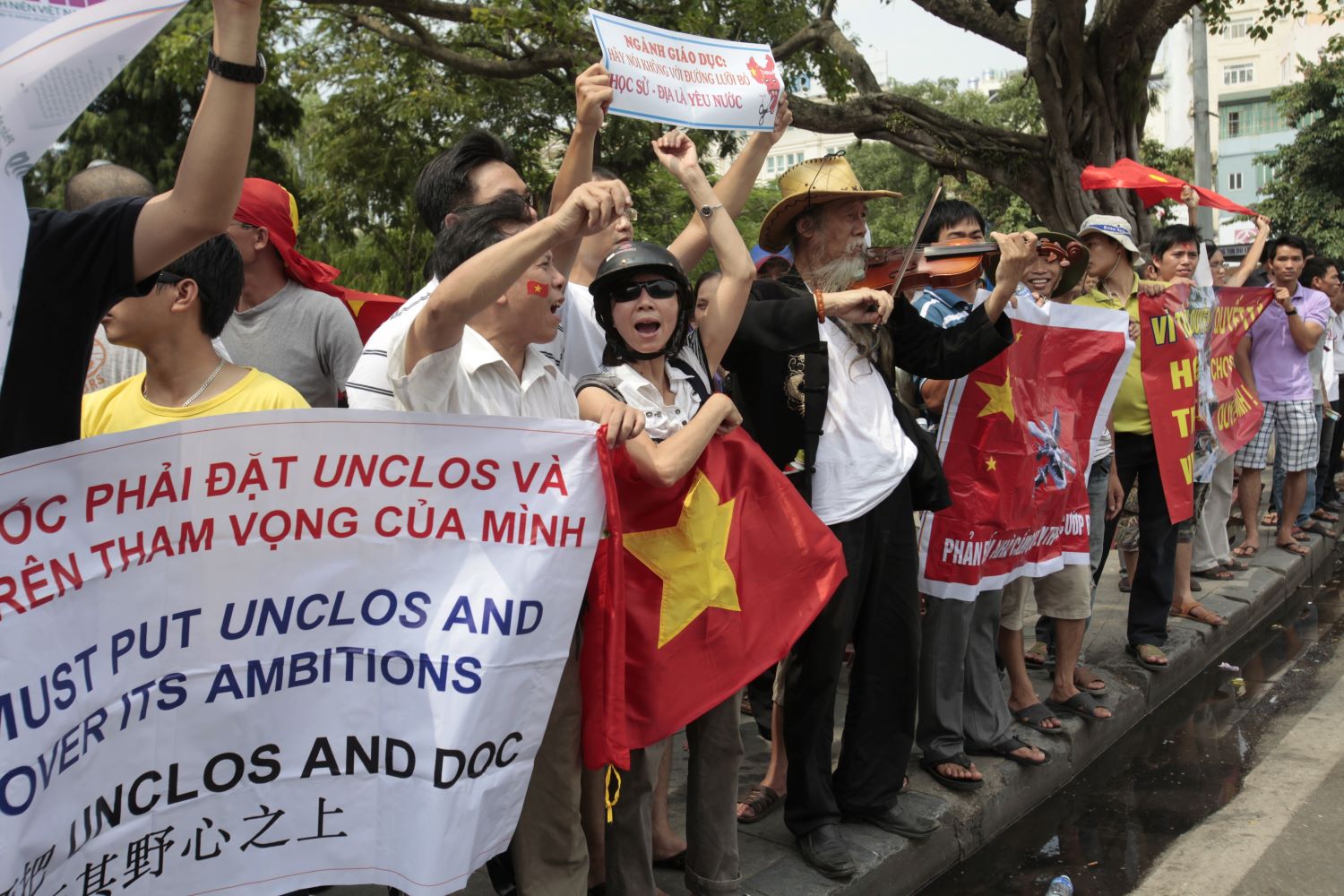
'We need to mind our words'
Another example is that she and her colleagues at the magazine have recently been told that they must not use the word “invasion” to describe Putin's attack on Ukraine because “our country is pro-Russia”.
“We can only refer to it as a ‘military intervention’, not a war. Nor can we openly criticise Putin,” she adds.
Hà says she always has to assess the political climate in order to determine the tone for her articles.
“When the US provided Vietnam with vaccines, we had to steer all America-related articles to take a less anti-American tone [than usual],” she says.
Hà says she personally does not object to this censorship, even adding that it is “beneficial for Vietnamese society”.
“Self-censorship is about not being selfish. It is about being considerate towards other colleagues and superiors and not to make life difficult for your editor-in-chief,” says Hà.
As a senior editor, Hà is particularly supportive of censorship regarding China stories.
For Quyên, shying away from writing about China means avoiding trouble with local authorities and diplomatic missions
“China is our neighbour and a big neighbour. We depend on China so much that we need to mind our words," says Hà.
The result of all this tip-toeing around by media outlets is that the general public simply do not trust what they see and read in the media.
A common saying which goes "journalists lie, writers fake" reflects the public's general distrust in the media, because journalists are not free to explore topics of interest and must always toe the Party line.
Vietnam has tightened its crackdown on independent journalists in recent years. Many high-profile independent journalists, who are deemed “hostile forces" due to their calling for democracy, have been arrested in recent years for creating and circulating anti-State propaganda.
In late 2021, prominent journalist Phạm Đoan Trang, who won the 2019 Press Freedom Prize, was sentenced to nine years in prison for such a crime. Human Rights Watch has referred to those charges as “bogus".
Despite worsening censorship in the mainstream media in the country in recent years, Hà believes there is wiggle room in her work.
“Human rights issues are sensitive. But not all human rights issues are unpublishable,” she says. “You are free to write anything until the editor-in-chief tells you otherwise. It is not that we have to shut up and shy away all the time.
“I try not to self-censor. I have about 20 years of experience. The worst-case scenario is the editor-in-chief will not publish my article. There is no punishment in place."
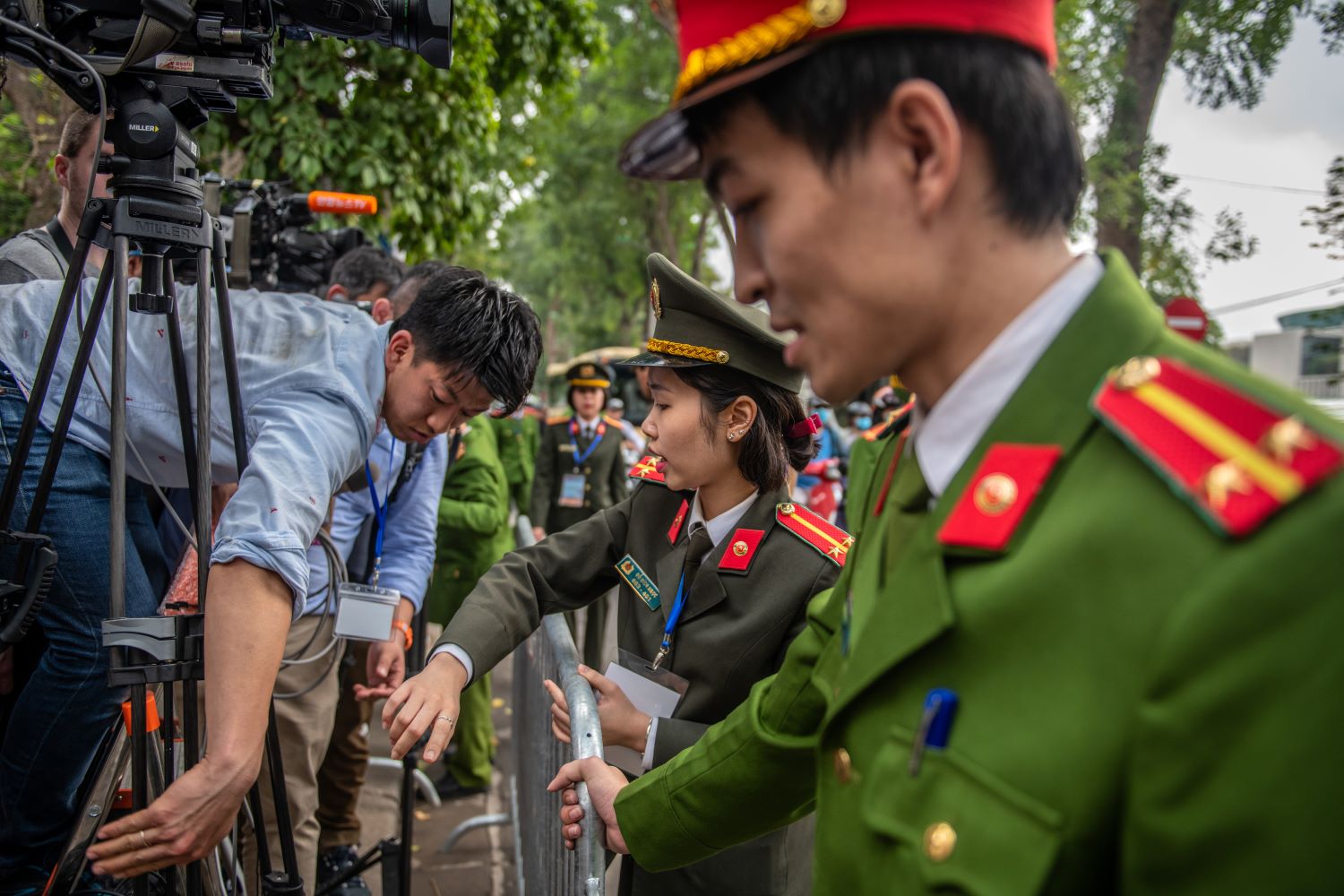
‘What might not be sensitive today could be dangerously delicate tomorrow’
However, Quyên, also covering international news at her not so well-known outlet, disagrees.
“Doing journalism is just like walking on a tightrope,” says Quyên.” What might not be sensitive today could be dangerously delicate tomorrow.”
In 2021, Vietnam scored 22 out of 100 (most free) according to Freedom House. The Foreign Ministry dismissed the ranking for Vietnam in the 2019 World Press Freedom Index from Reporters Without Borders in 176th place out of the 180 countries as “unjust and unconvincing”.
The challenge lies in the absence of any explicit statement on what is sensitive and what is not. For both affiliated and independent journalists, there is constantly a lot of guesswork to do. Among topics that are deemed as sensitive, journalists interviewed for this article seem to agree on issues germane to Chinese politics.
For Quyên, shying away from writing about China means avoiding trouble with local authorities and diplomatic missions.
Once, in an article about Taiwan, she referred to Tsai Yingwen in Vietnamese as “President of Taiwan” instead of “the leader of Taipei China''. Shortly after her article was published, the Chinese Embassy in Hanoi made a call to her agency to complain about the “slip of the pen” that was not in line with the Vietnamese government's One China policy.
Nguyễn Trọng Hà, a former technician at VTV 3, the state - owned entertainment TV channel, says: “When you have security people present 24/7 at the TV station, you will surely know what to say and what not to say.”
Nguyễn Trọng Hà explains that police officers, mostly in plain clothes, are often sent to major TV stations to make sure anything that does not pass muster does not end up on air, especially in programmes that contain foreign elements, such as coverage of international news or talk shows with foreign guests, etc. They especially watch over TV anchors in live-broadcast events.
As a general rule, journalists are not allowed to write about anti-state personalities or those who have made anti-Party statements in the past.
In 2017, on the occasion of the 100th anniversary of the birth of President John Kennedy, Việt filed his article - a review of the book “Rosemary: The hidden Kennedy's daughter”. His editor happily agreed to proceed with the piece. However, when it was about to be published, Việt was informed that “someone above” did not approve of his book review, since it was written in a very laudatory tone.
“They told me that Kennedy was a very anti-Communist president, so I could not compliment a book about his daughter,” says Việt, adding that he could not publish his work elsewhere either.
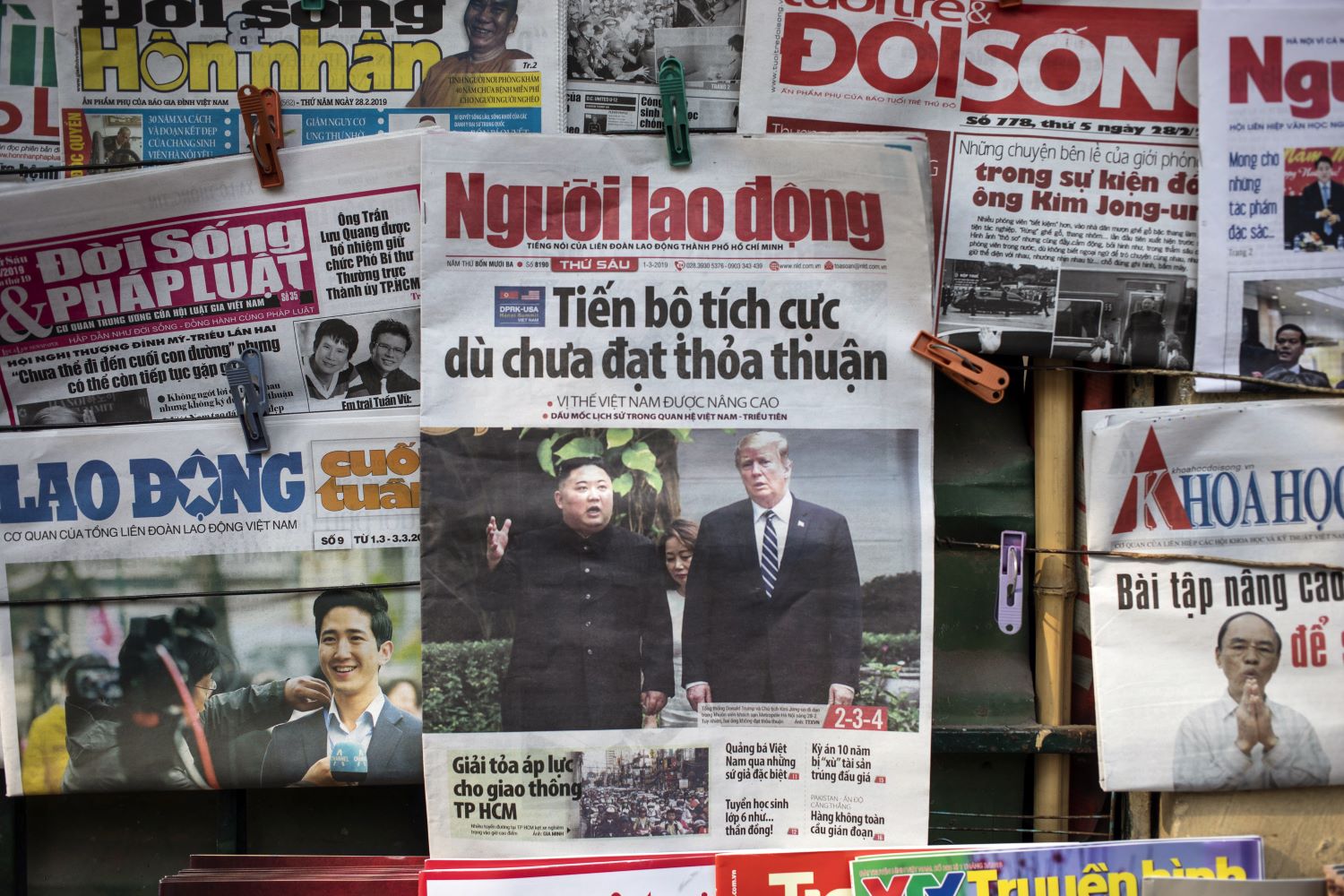
Imperfect censorship
Việt recalls being reminded by editors that they could not publish some of his stories due to a top-down order. It was back in the 1990s, when he had published many articles about Europe.
“They accused me of speaking ‘highly of the capitalist world’. That puts the socialist Vietnam to shame,” explains Việt.
Việt also pitched work to French-speaking outlets abroad. But, one day in the late 1990s, a local police officer came to his house and gently warned him not to “say bad things about Vietnam to foreigners".
“I have little idea how they had been aware that I was sending stuff abroad. They must have opened my letters,” says Việt. “Had they been able to read French, they would have known that I was only writing film reviews and nothing about Vietnam.”
In 2006, Prime Minister Nguyễn Tấn Dũng intensified press censorship by signing a decree on sanctioning “administrative violations in cultural and information activities”, whereby reporters could be fined for writing articles that relied on sources and required articles to be reviewed by the state prior to publication.
A number of other vaguely worded laws have come into force in recent years. The 2018 Cybersecurity law strengthens the state's control over the growing media and clamps down on the activities of journalists working online. Article 8 of the law prohibits the use of the internet to “distort history, deny revolutionary achievements or undermine national solidarity”, for example. In 2020, a new Fake News Law was put in place with a view to curbing “anti-state” content.
As a result, journalists have to be very careful about not including anything deemed “toxic” in their reports. Fines for doing so can be as high as 40 percent of a journalist’s monthly salary.
According to Trần Thị Phương Lan, a Hanoi-based former reporter at a state-owned English-language news organisation, a Vietnamese editor - known informally to staff as “the censor” - would re-edit the work of the English editor to ensure that nothing controversial had slipped through.
“Only when the censor approves of the article will it appear in the newspaper,” says Lan.
Yet accidents still happen.
Quyên recounts how a colleague of hers, who had no background on international affairs and history, accidentally included a photo from Reuters which featured the flag of the South Vietnamese government alongside a report about the Capitol Hill attack in Washington in early 2021. The Communist government has never recognised the short-lived government of Sai Gon. When it was discovered, the article was deemed to be “containing an anti-Party image".
Somehow the checker did not notice it. As a result, the outlet had to pay a fine.
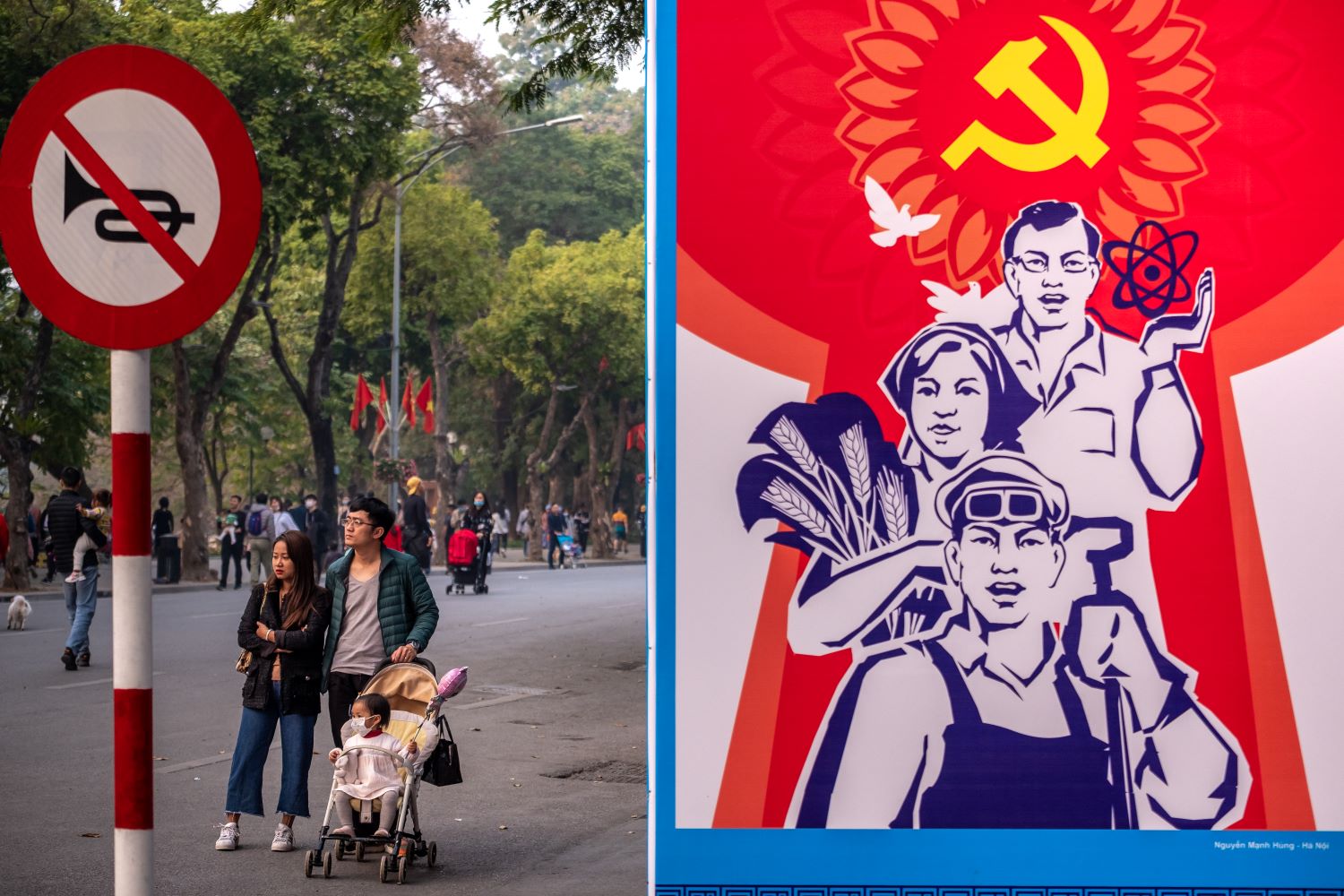
‘Blackening’ the Party is not possible
In his article “Kill one to warn hundreds: The politics of censorship", American journalist Geoffrey Cain describes crackdowns against the Vietnamese press as “unpredictable and arbitrary”, even though the stakes are higher if exposés of high-ranking officials are published.
Censorship is erratic, he argues, because while the Party looks united, it is not monolithic.
“Exposing individuals is generally fine, but blackening the Party is not possible,” says Việt.
In the state outlets, the unwritten rule goes: Number 1: The party is always right. Number 2, if they happen to be wrong, look back at Number 1.
Vietnamese-language content has always been the main target of the censorship mechanism. Blocking of English language sites has only occurred every now and then.
Without use of a VPN (virtual proxy network), the BBC in either English or Vietnamese is not accessible in Vietnam. Recently, following the publication of David Hutt's article in The Diplomat magazine on May 5 about the role of mistresses in Southeast Asian politics, many Vietnamese readers reported not being able to access the website.
The article referred to Ho Chi Minh, the Vietnamese supreme leader, who was described by the Party as a saint, remaining unattached throughout his life to sacrifice for the country.
“Censorship is so intermittent that sometimes you have the illusion that you could write about anything, only to be reminded by some police officers that you could not,” says Việt.
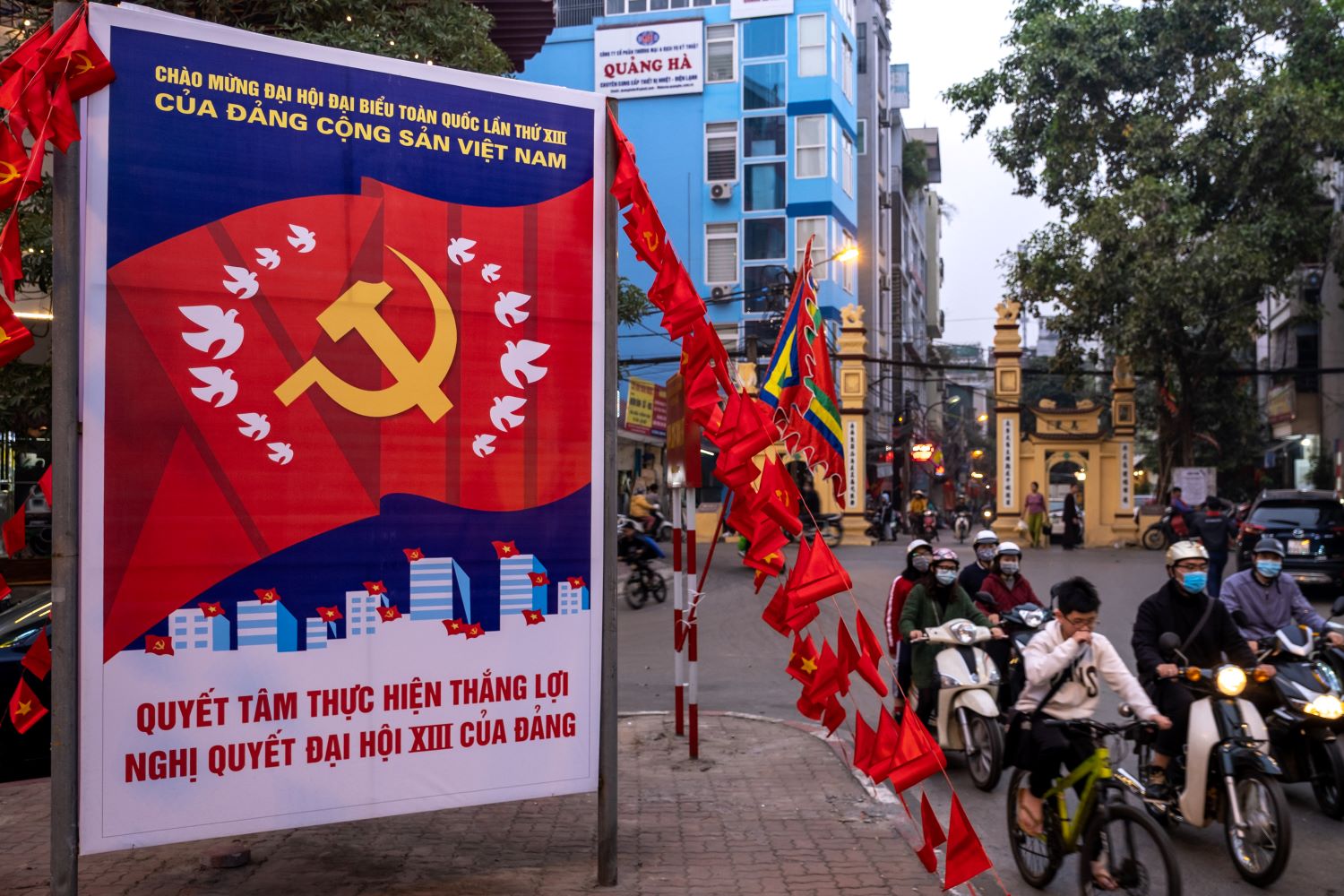
‘Toxic content’ - the Party or pornography
Anh*, a 23-year-old journalist feels lucky to be currently working for a top entertainment news agency in Vietnam upon graduation. Her outlet is widely viewed as the most popular Vietnamese tabloid.
“Choosing to work for the entertainment column is already a form of self-censorship, because I want to stay detached from politics," says Anh.
“We have a lot of freedom since we produce ‘non-toxic content’ in the eyes of the government, meaning that their publications have little to do with the Party or with pornography,” she adds.
In fact, the definition of “toxic content” has changed over the years. In the 1990s, it referred only to pornography. The government used pornography as a pretext for its censorship, citing that it would have a “bad influence on young minds”.
However, coverage of Chinese entertainment is not risk-free either. In recent years, some Chinese celebrities have begun to make politically sensitive statements. Some Chinese TV series may also contain politically sensitive issues that are not in line with the Vietnamese government discourse, such as maps with contested territories in the South China Sea, one of major sticking points in Sino - Vietnamese relations. As a result, the Chinese entertainment industry has also become “toxic”.
“I left the Chinese entertainment section because I do not want to run any risk,” says Anh. “I could be fined 40 percent of my monthly wage for writing articles about a controversial Chinese figure.” These days, she sticks to domestic entertainment stories only.
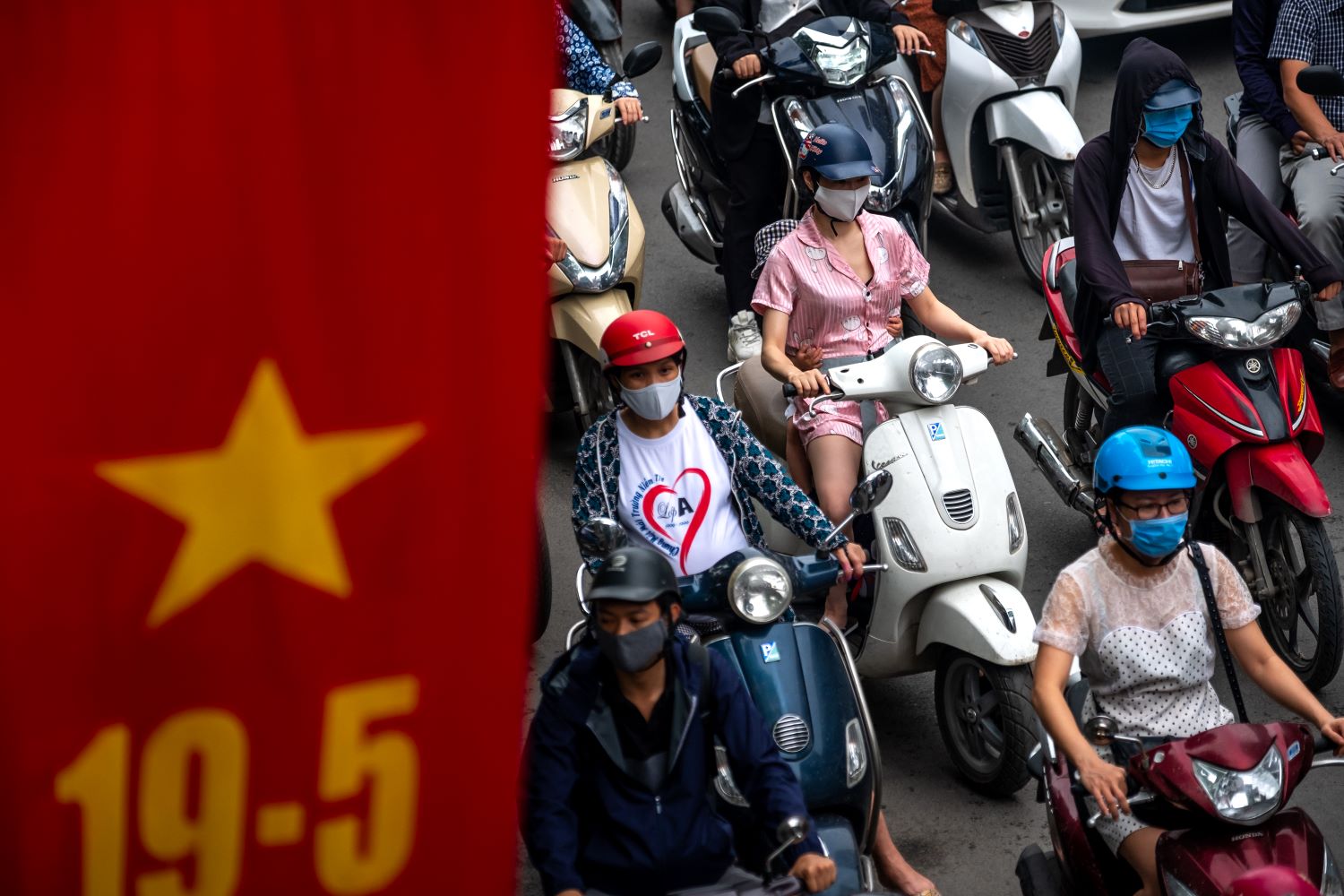
Walking the thin line between nationalism and capitalism
The state needs the growing space between the regime’s political censorship of the media and the need to use the media as tools of economic development and of curbing corruption.
The internet came to Vietnam in 1997, even though Vietnam had plans to develop the internet much earlier. The blogosphere experienced a boom in the mid 2000s. Hà says that while the internet provided her with her job, it also increased competition, especially from social media. As a well-received online outlet without a corresponding print version, they need to balance between their functions as a propaganda apparatus and a profit generator.
“We do not have a lot of budget to do fieldwork. Also, a citizen journalist might do a much better job than a professional. Also, with the censorship mechanism [dragging on production time], state-affiliated journalists cannot be as fast as social media,” says Hà, who now focuses more on data-based journalism to stay competitive.
Quyên resorts to covering non-sensitive issues, which are not her favourite part of being a journalist, in order to stay afloat.
“Coverage of military fighting always receives a lot of views and likes,” says Quyên, adding that she has no idea why this subject is so popular among Vietnamese readers.
A large number of journalists survive on “envelopes" during their field trips, she says. In general, companies and state agencies are keen to be on good terms with media professionals. Reporters' income is particularly boosted by visits to events.
“Organisers always give journalists gifts without fail, since journalists are powerful," says Quyên.
A TV anchor hosting the programme reminded all participants: ‘No politics and religion. Full stop.’
Trần Thu Thuỷ, a Hanoi-based former civil servant in the field of trade and industry adds: “We always have to prepare an ‘envelope’ for media folks at our events. We are not afraid of them writing badly about us. But if we do not behave nicely towards them, they are not going to compliment our agency."
“Vietnamese businesses work a lot in the grey zone, so it is always easy to find fault with. They cannot afford to cold-shoulder journalists," says Quyên.
Quyên adds that she does not feel guilty about receiving those gifts.
“If not [receiving gifts], how can I survive on the monthly wage of VND 6 million [$260]?” Asks Quyên, who has been working for her outlet for five years.
While senior journalist Việt encourages his children and grandchildren to read more hard news in foreign languages, he himself sticks to writing “soft” stories to earn a modest salary each month.
Việt did not expect one of his grandsons, Long, to pursue journalism. But he is now in his third year at the Academy of Journalism and Propaganda while working part-time as a content contributor to an online magazine, covering mostly luxury products and fashion.
“He [Long] is now able to cover many things in the capitalist world," Việt says.
For his internship, Long was tasked with covering a well-known TV show for teenage debaters across the country. He remembers the first day being at the TV station, witnessing candidates preparing for a debating show. A TV programme anchor hosting the programme reminded all participants: “No politics and religion. Full stop."
*Some interviewees are referred to by their first names only to preserve anonymity
